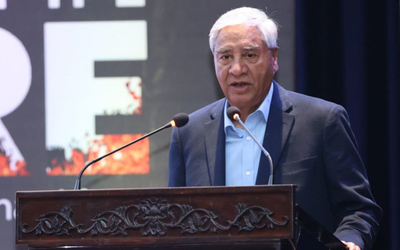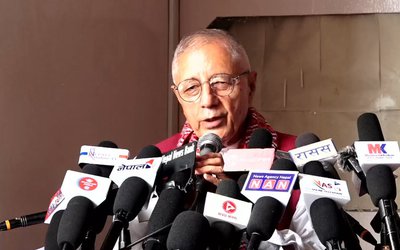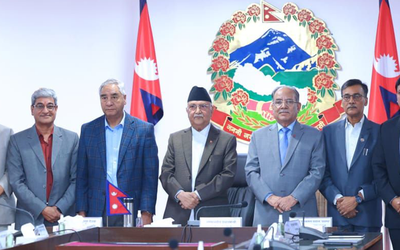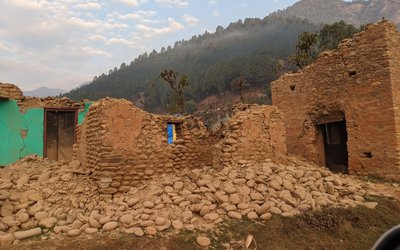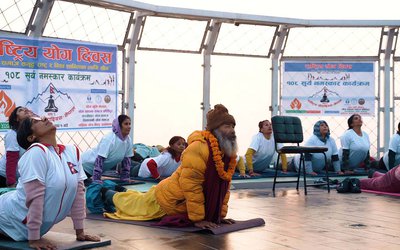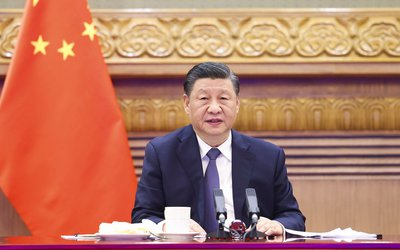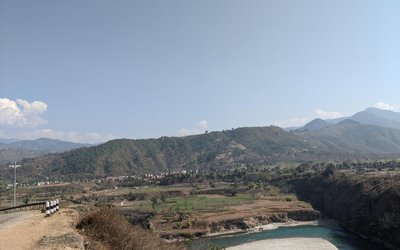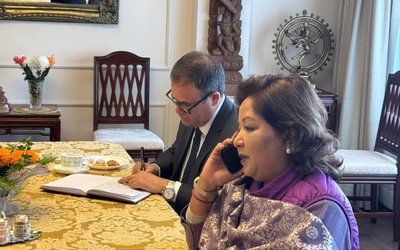
If the tirades against KP Sharma Oli-led government provide any indication, sooner or later, this government will also fall into the vicious cycle of instability as all its predecessors did.
In a recent party meeting, Prime Minister Oli reportedly accused all the political forces, his own colleagues, and Nepal’s western development partners for not supporting his cause.
He blamed opposition Nepali Congress, civil society and judges for showing a hostile attitude against the government. After the rejection of chief justice nominee Dipak Raj Joshi by the Hearing Committee, Nepali Congress leaders are very suspicious about the intention of Nepal Communist Party and have declared non-cooperation to the government.
“If the prime minister is not sincere to the recommendation he has made, there is no reason to participate in a meeting headed by him,” said Nepali Congress leader Gyanendra Bahadur Karki, indicating prime minister Deuba’s possible stand in future for the Constitutional Council meeting.
Instead of working to bring development agenda to the forefront, prime minister Oli-led government is running on courses to create a rift with other political forces.
With intervention in judiciary, Nepal Communist Party leaders justified NC leader Deuba, who spared all his elections speech showing the threat of authoritarianism under NCP rule.
After withdrawing his insistence against Govinda K.C’s demand, Prime Minister Oli has compromised with civil society leaders and patched up a hole. However, PM Oli has to pay dear in the judicial front.
Similarly, he also blamed ministers and his own party men for not working at the right speed. He reportedly praised Nepal’s two neighbors India and China for supporting him.
Although he finally settled the issue with Dr. Govinda KC agreeing to fulfill his demand to reform medical education, it is uncertain whether it will be materialized given a number of amendment proposals tabled by his own party members.
The recent decisions of local level and provincial governments to impose additional taxes have also irked Oli. In this context, growing frustration against all the forces is understandable.
Although Prime Minister Oli unified two communist parties in hundred days as he had promised and consolidated all the powers at the center, he is yet to able to set up the local levels.
Prime Minister Oli has come to the power with so many promises, including economic prosperity and stability. However, no tangible result is coming from his action.
As the three tires, central, standing and high level committees, are set up at the center, Prime Minister Oli and his Co-chair Prachanda are now consolidating power and they are not free from challenges within.
The unified Nepal Communist Party (NCP) leaders have already set up party organizations, from high command, central committee, standing committee to local level party committees.
As all the political power lies in two chairpersons, other leaders see a threat of monopolization of power by the two leaders while taking party decisions. According to party statute, Prachanda is as powerful as Prime Minister Oli in the new party and general secretary Bishnu Poudel backs them.
Although newly formed high command has nine members, three leaders, PM Oli, Prachanda and General Secretary Poudel, are exercising the power within the party. The recent decision to bar ministers from taking executive position in the party is also likely to intensify the disenchantment.
Several leaders, across both the communist parties, have failed to gain a place either in the high-command or in the central committee or in the standing committee.
With brewing dissension within the party and increasing hostility with main opposition and civil society, KP. Sharma Oli-led government seems to be entrapped into an unstable political course.
- GLOBAL IME BANK: Celebrating Eighteen Years of Progress
- Jan 13, 2025
- JALPADEVI CABLE CAR: IME Group's Latest Project
- Jan 12, 2025
- NIMB Achieves Accreditation With Green Climate Fund (GCF)
- Jan 10, 2025
- NATIONAL UNITY DAY: Unity Trail
- Jan 10, 2025
- TOURISTS ARRIVAL: Surpass A Million
- Jan 10, 2025



